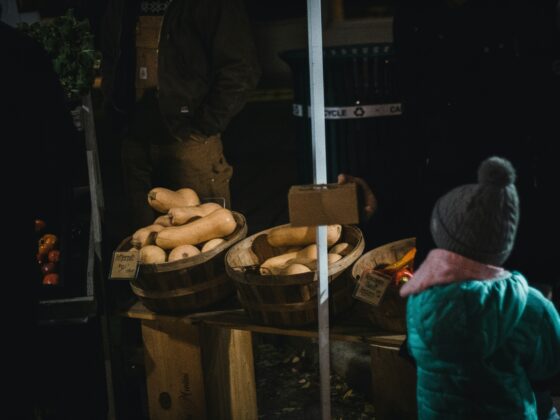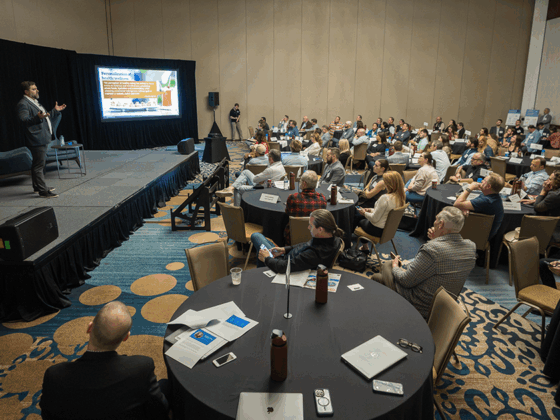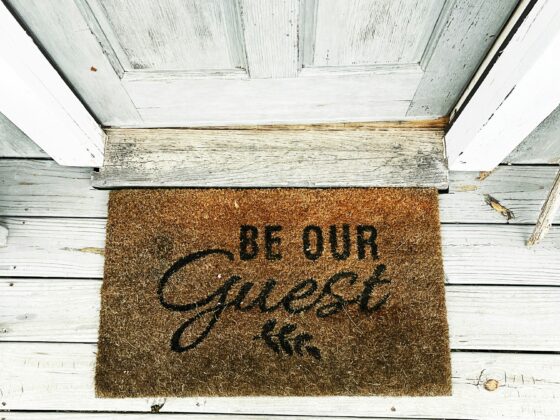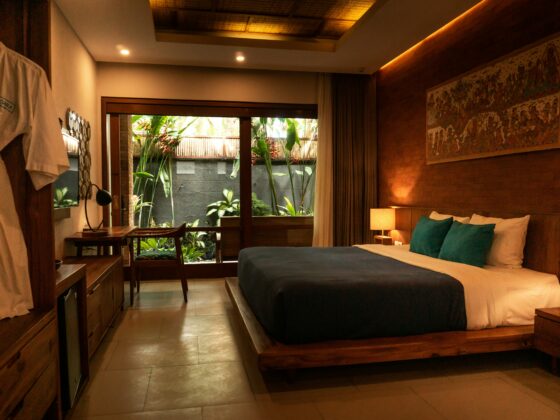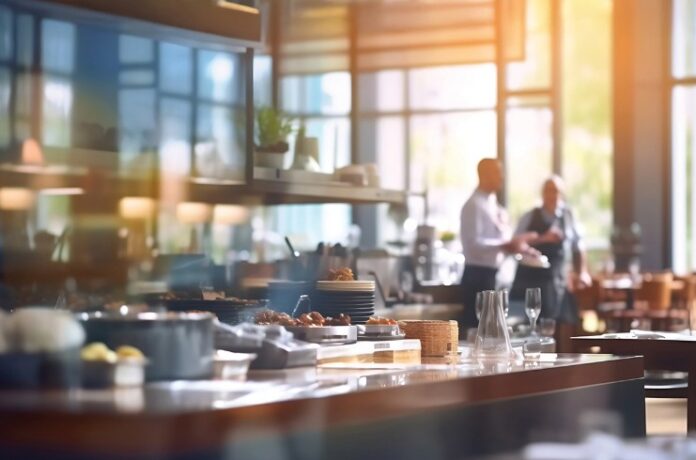
In recent years, the U.S. supply chain has experienced much fluctuation, from global shipping delays and rising costs to shifting consumer demands. Hotels have felt the ripple effects of this unpredictability at every turn. What once was a behind-the-scenes effort has now become a top priority: Procurement teams need to balance cost pressures associated with the supply chain with the need to deliver on essential guest experiences.
From FF&E to food and beverage and even technology that powers hotel operations, every piece of the procurement puzzle is under scrutiny. As the industry constantly adapts, hoteliers, operators, and third-party partners are rethinking supplier relationships, prioritizing resilience, and redefining what procurement means in a rapidly changing marketplace.
The State of the Supply Chain
Since the COVID-19 pandemic, the state of the U.S. supply chain has been in constant flux. “The challenges and opportunities have varied each year since 2020,” observed Cameron Schultz, CEO of Foodbuy Hospitality, a group purchasing organization (GPO), which is a third-party, strategic partner that negotiates contracts with suppliers on behalf of its partnered companies. “We have gone from product shortages in 2020 to AI (avian influenza) flu restrictions in 2022 to the tumultuous tariff trends of today. Variety is the spice of life, so they say, and being aware of that keeps us sharp and on our toes.”
Some have seen a stabilization of the supply chain compared to the chaos of a few years ago, “but it’s still challenging,” according to Ted Peters, senior vice president, food and beverage strategy, Remington Hospitality. “Back then, we were dealing with shortages, unpredictable shipping costs, and lots of uncertainty. Today, things are steadier, but prices are still higher than before the pandemic, and delivery times can sometimes be longer than expected.”
Ashley King, director of procurement, Resolute Road Hospitality, shared a similar sentiment. “The supply chain has come a long way from the volatility we saw a few years ago. Lead times are shorter, products are easier to source, and hotels can plan with more confidence. While costs are still elevated in some categories, the environment feels more predictable and manageable.” Jason LaBarge, executive vice president, Raines, added, “Overall, today’s supply chain is stable. U.S.-based goods are readily accessible. Imported goods are expected to arrive within eight to 12 weeks, depending on the product. While tariffs remain a concern, we are currently experiencing minimal increases of 4 to 6 percent.”
Apart from the improved stability of the supply chain, King noted, “The real shift is mindset. Procurement has become more strategic, with hotels leaning on stronger vendor relationships and smarter technology to stay ahead. The volatility forced hotels to evolve, and that evolution has made procurement stronger.”
Sourcing Challenges
Product categories that are more difficult to procure for hotels include distribution components, food and beverage supplies, FF&E, and housekeeping items, just to name a few. Schultz mentioned that Foodbuy Hospitality has “been fortunate this year” in terms of sourcing categories that have faced challenges. “We are, however, constantly watching the state of animal health with poultry flocks and cattle herds. Our team has also stayed diligent with action items needed involving tariffs, which could be described as a ‘topsy turvy’ topic right now.”
Peters stressed the timing that is essential to procurement in categories beyond F&B: “When it comes to new builds or renovations, procurement isn’t just about food and beverage. It also includes FF&E and OS&E. Timing is key, and we coordinate closely to make sure everything arrives when it’s needed and meets brand and operational standards. The big change is that procurement is no longer just about the cheapest price; it’s about making sure things are reliable, consistent, and flexible across all hotels.”
According to LaBarge, certain global and regional trends have caused procurement challenges for hotels. “Tariffs are certainly the most concerning trend,” LaBarge emphasized. “A majority of suppliers have indicated they have six to eight months of stockpiled inventory that they can sell at current pricing. I am concerned that by the end of 2025, procurement orders from overseas will see larger increases, potentially in the range of 15 to 30 percent.”
“Procurement today is shaped by a mix of cost pressures and new opportunities,” King said. “Tariffs and trade policies continue influencing pricing on imported items, while freight and labor costs affect everyday supplies. Vendors are also keeping leaner inventories, which means hotels need to plan more carefully to avoid disruptions. At the same time, the tools to manage these pressures are getting better. AI forecasting and smarter ordering platforms give procurement teams earlier visibility into risks and help them make adjustments before they run into problems.”
Cost volatility and inflation have also impacted the supply chain within the past few years, from rising costs across the board for food and beverage imports and raw materials to shipping and distribution pressures including freight and project delays, among much more. Shifting procurement strategies and reevaluating supplier relationships are key approaches in this environment. Collaborating with a GPO like Foodbuy Hospitality is one of the ways in which hoteliers can leverage scale and hedge against cost swings.
Procurement Processes and Partners
GPOs are one of the most visible procurement roles in the hospitality industry, collaborating with hotel companies to mitigate procurement costs. However, individual hotels, companies, and brands can implement other procurement models depending on their size and scale; procurement doesn’t have a one-size-fits-all solution. Additional sourcing routes include direct relationships with suppliers and vendors, in-house brand or corporate procurement programs, regional and local sourcing, and digital platforms.
GPOs specifically play an important role in sourcing and procuring essentials for hotels. Benefits of partnering with a GPO include getting lower prices on goods and services than an individual property or brand could with its own purchasing power and negotiating with suppliers so that hotels don’t have to manage individualized deals.
As a GPO, Foodbuy Hospitality “provides stability for our customers because many of the largest spend categories are guided by contracts with commercial terms,” Schultz said. “These terms include notifications, formulas, and mechanisms that assure proper timing, which helps us make our customers aware of any changes. We also do a great job of forming multi-vendor contracts to provide options when needed.”
Collaborating with a GPO can also alleviate challenges posed by supply chain disruptions and secure product availability. Schultz underscored the importance of partnering with the right GPO for an organization’s needs: “It’s providing peace of mind; having a GPO partner that holds significant weight with manufacturers and distributors [plays a role in] making sure the items you value have been earmarked for your purchasing needs.”
Beyond cost savings for products, leveraging procurement partnerships improves efficiency and the guest experience. Schultz shared that for Foodbuy Hospitality, that means, “There are four pillars of value that we look to bring our customers. Being a GPO, the savings and solutions pillar is the most tangible and visible one. However, the other three—impactful experiences, personal relationships, and thought leadership—are providing exponential value for our customers.”
Schultz provided the example of its Culinary Solutions team, which uses all four pillars. “This group of experts meets our customers at any number of levels needed to make their overall operation perform more efficiently and provide their patrons greater sensory experiences,” he explained.
Considering Sustainability
Sustainable sourcing has become a growing priority as hotels balance operational needs with environmental and social responsibility. Hotel companies and their procurement teams or purchasing partners can choose suppliers that emphasize renewable materials, ethical labor practices, and reduced carbon footprints, whether that means sourcing linens made from organic textiles, partnering with local farms, or working with vendors who use recyclable packaging.
For Foodbuy Hospitality, this initiative comes down to making sure that sourced products meet their clients’ sustainability standards. Schultz explained, “The two standards we consistently see are the reducing carbon footprint and animal welfare purchasing. With that said, many customers have other unique perspectives and goals. Foodbuy Hospitality utilizes our supplier code of conduct to set a foundation for our business in any exercise.”
Sustainability must also be balanced with cost savings, which in and of itself is a challenge. “The key to this is communication and planning,” said Schultz. “It’s important to find organizations with similar targets and to meet with compromise. Then, work together over time to balance goals. An example is NETZero. Many other organizations are on a similar journey, and Foodbuy Hospitality seeks to partner with suppliers that have identified they are willing to invest in NETZero as well. By sharing in some costs, both organizations benefit. We have had many events with leadership and thought leaders of multiple vendors in a room together with our leadership team to share information and plan together.”
Beyond reducing environmental impact, sustainable procurement also resonates with today’s travelers, who increasingly expect brands to reflect their values. For hotel companies, weaving sustainability into sourcing strategies isn’t just good press; it’s a way to build stronger community ties and align with long-term ESG goals.
Forging Ahead
The supply chain has shifted within the past few years, and so, too, has the hospitality industry. Guests expect more from their hotels than ever before, and operations have risen to meet those challenges, as well as ever-evolving supply chain disruptions.
Throughout the changes, “the principle of being prepared for everything continues to ring true for us at Foodbuy Hospitality,” said Schultz. “Our level of communication and understanding—with vendors, distributors, and customers—surged during the pandemic. It helped us through those tough times, and it helped us surge thereafter. Those unique challenges that were dealt upon us all in the spring of 2020 taught our team a lot of great life lessons.”
Similarly, Peters shared that the future of hospitality procurement lies in “closer supplier partnerships,” such as “moving beyond just buying to working together with suppliers, sharing forecasts, planning menus on projects, and creating programs that benefit both sides.”
King also weighed in on the evolution of hospitality procurement, predicting it will go beyond “just integrating platforms” to “creating fully connected ecosystems.” According to King, “Procurement, finance, forecasting, and operations will no longer be separate workflows. One sourcing decision should be able to show its impact instantly, not just on budgets and forecasting, but on the guest experience itself. That kind of visibility changes procurement from a cost center to a driver of growth. In five years, the most innovative hotels will not treat procurement as paperwork. They will treat it as a competitive advantage.”
Much of that evolution will be facilitated by tech innovation. “AI integration into procurement technologies will both refine decisions being made and rectify past mistakes,” Schultz maintained. “I also believe we’ll see even more advancements in cross-collaboration between software being used today. A subtle but significant change will be how we all in the industry evolve with these changes on the horizon. For me, it’s exciting. Think about how much more technology can do for us, which will provide industry professionals even more time to strategize on the next big thing for their business.”
Data, Analytics, and AI
Hotels are increasingly turning to data and analytics to transform procurement from a cost-control function into a strategic driver of efficiency and guest satisfaction. By analyzing procurement patterns, hotels can identify overspending, consolidate orders across properties, and negotiate stronger supplier contracts. Forecasting tools help procurement teams anticipate demand spikes—such as peak travel seasons or major events—so they can secure inventory in advance and avoid shortages.
Analytics also provide visibility into supplier performance, highlighting issues like delayed shipments or quality inconsistencies, which allows hotels to hold vendors accountable or pivot quickly to alternatives. On a broader level, cross-departmental data integration creates opportunities for smarter budgeting and alignment between procurement and overall business goals.
“There is more data at people’s fingertips now than ever before,” Cameron Schultz, CEO, Foodbuy Hospitality, shared. “The key differentiator, however, is how you turn this data into relevant information that can tell a story and point you in the right direction. Foodbuy’s customer dashboard, MPower, is a prime example of a platform that turns information into action.”
Ted Peters, senior vice president, food and beverage strategy, Remington Hospitality, added that smarter forecasting using data third-party systems will enable hoteliers “to better predict demand, reduce waste, and make the most of ingredients and supplies.” Over the next three to five years, technology will also improve the selection and approval process, according to Jason LaBarge, executive vice president, Raines. “The biggest opportunities lie in technology that can assist hoteliers with pricing and product comparisons. Currently, the selection and approval process is taking too long. Procurement companies need to improve their sourcing capabilities and provide better price comparisons for designers and hotel owners,” he said.
Apart from these specific enhancements through technology, procurement will take on a more central role in the future, predicted Ashley King, director of procurement, Resolute Road Hospitality. “The next wave of innovation will be about moving procurement out of the background and into the center of hotel strategy,” she said. “AI and automation are part of that, but the real opportunity is how those tools connect directly to revenue, profitability, and guest satisfaction.”



